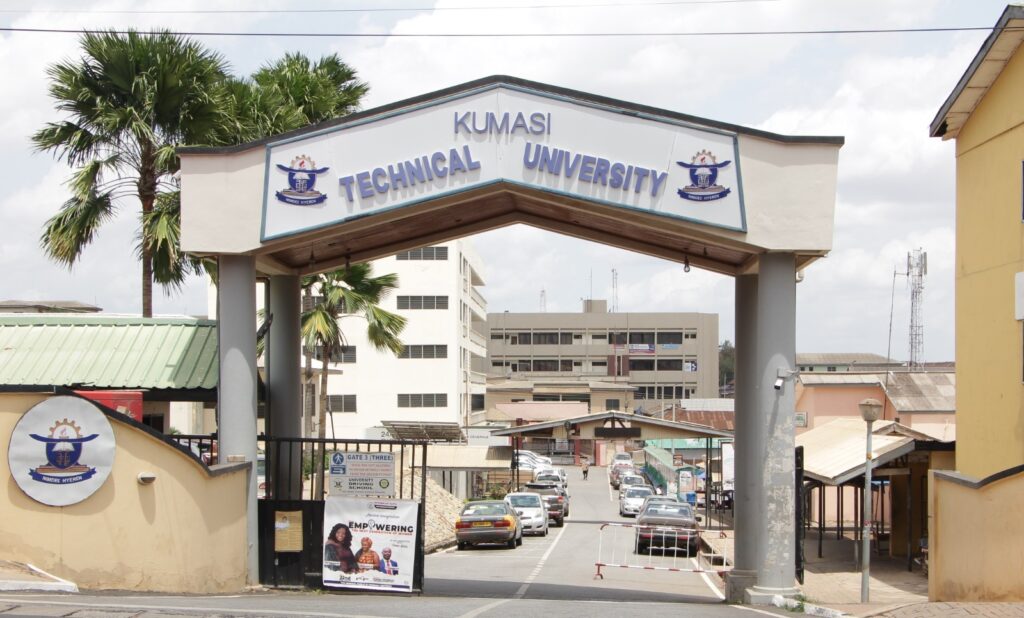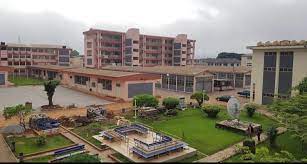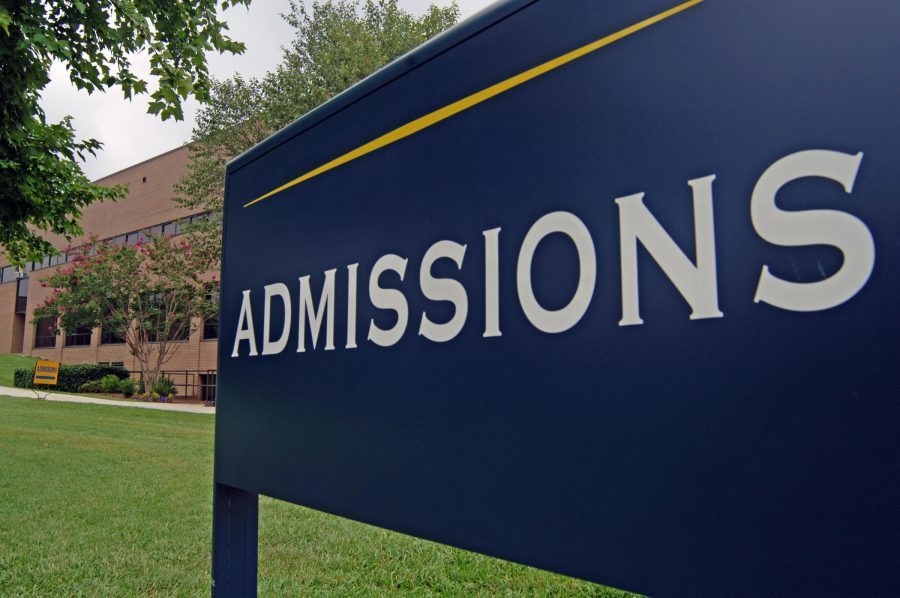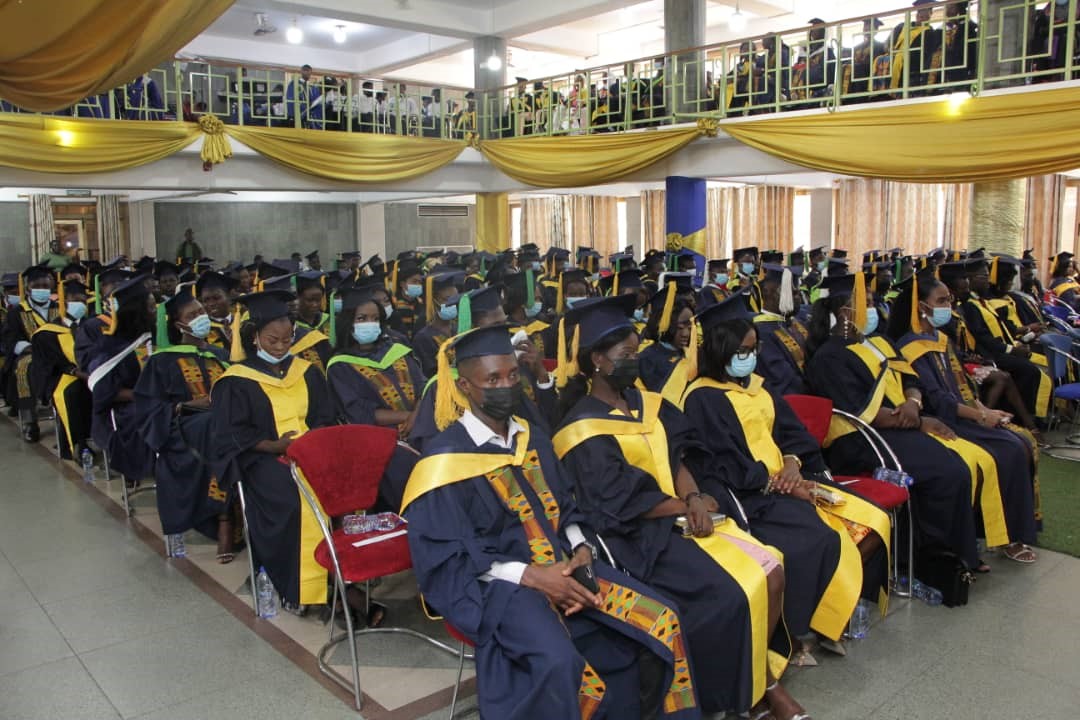In this article, we delve into the extensive range of programmes offered by Kumasi Technical University.
From degree programmes that blend accounting with informatics and agribusiness with entrepreneurship to non-tertiary diploma courses and postgraduate offerings, the university’s commitment to excellence is evident in every facet of its education.
Introduction to Kumasi Technical University:
Kumasi Technical University, formerly known as Kumasi Polytechnic, is a prominent technical institution in Ghana, located in the heart of Kumasi, the Ashanti Region’s vibrant city.
The university’s primary objective is to provide high-quality technical and vocational education to equip students with the skills and knowledge needed to thrive in today’s dynamic job market.
Established with a vision to become a center of excellence in technical education, Kumasi Technical University offers a wide array of B.Tech, BSc, HND, and Diploma programs, catering to various industries and sectors.
Kumasi Technical University Programmes
Below are the Kumasi Technical University Programmes

Bachelor of Technology (B.Tech) and Bachelor of Science (BSc) Degree Programs:
- Bachelor of Science in Accounting with Informatics: Combining accounting principles with informatics, this program prepares students for careers in financial data analysis, auditing, and accounting information systems. Graduates gain a strong foundation in both accounting principles and the application of information technology in the financial sector.
- Bachelor of Science in Agribusiness with Entrepreneurship: This program aims to develop agribusiness entrepreneurs who can contribute to the growth of the agricultural sector. Students learn about agricultural practices, agribusiness management, marketing, and entrepreneurship.
- Bachelor of Science in Agricultural Mechanization Engineering: In this program, students delve into the world of agricultural machinery and engineering. They learn to design, maintain, and operate farm equipment, contributing to increased agricultural productivity.
- Bachelor of Science in Applied Statistics (Environmental Statistics): Students interested in environmental data analysis and research can pursue this program. It focuses on statistical techniques applied to environmental studies and sustainability projects.
- Bachelor of Science in Applied Statistics (Financial Statistics): With a focus on financial data analysis, this program equips students with the statistical tools necessary for understanding and managing financial data in various industries.
- Bachelor of Science in Applied Statistics (Health Statistics): Healthcare professionals seeking to enhance their analytical skills can opt for this program. It covers statistical methods used in health-related research and healthcare management.
- Bachelor of Science in Banking and Finance: This program prepares students for careers in the banking and financial sectors, offering insights into banking operations, financial markets, and risk management.
- Bachelor of Science in Building Services Engineering: Students in this program gain knowledge in the design, installation, and maintenance of building systems such as heating, ventilation, air conditioning, and plumbing.
- Bachelor of Science in Chemical Engineering: This program focuses on chemical processes, product development, and industrial operations. Students learn about chemical reactions, process optimization, and safety measures.
- Bachelor of Science in Civil Engineering: Civil engineering students are exposed to the design and construction of infrastructure projects like roads, bridges, buildings, and water supply systems.
- Bachelor of Science in Computer Technology: In this program, students learn about computer hardware, software, networking, and system administration, preparing them for careers in IT support and management.
- Bachelor of Science in Data Science: With a growing demand for data professionals, this program equips students with data analysis, machine learning, and data visualization skills.
- Bachelor of Science in Electrical/Electronic Engineering: Students explore electrical circuits, electronics, power systems, and telecommunications, paving the way for careers in various industries.
- Bachelor of Science in Estate Management: This program focuses on real estate development, property management, and valuation, preparing students for roles in the real estate sector.
- Bachelor of Science in Food Technology: In this program, students study food processing, preservation, and quality control, playing a crucial role in the food industry.
- Bachelor of Science in Hospitality Management and Catering Technology: Hospitality management students gain insights into hotel operations, catering services, and event management, preparing them for the hospitality industry.
- Bachelor of Science in Industrial Laboratory Technology: Students learn about laboratory techniques, instrumentation, and analysis, contributing to quality control and research in various industries.
- Bachelor of Science in Interior Design Technology: This program focuses on interior design principles, space planning, and aesthetics, producing skilled professionals in the field.
- Bachelor of Science in Marketing: Marketing students acquire knowledge in consumer behavior, advertising, and marketing strategies, essential for promoting products and services.
- Bachelor of Science in Mechanical Engineering (Manufacturing): This program emphasizes manufacturing processes, automation, and product development, preparing students for roles in the manufacturing sector.
- Bachelor of Science in Mechanical Engineering (Metallurgy and Materials): Students explore the properties and applications of materials in engineering, contributing to industries like aerospace, automotive, and construction.
- Bachelor of Science in Mechanical Engineering (Plant): Plant engineering students focus on the design, operation, and maintenance of industrial plants and machinery.
- Bachelor of Science in Mechatronics Engineering: Combining mechanical, electrical, and control engineering, this program produces professionals skilled in designing and maintaining complex systems.
- Bachelor of Science in Medical Laboratory Technology: This program trains students in medical laboratory procedures, enabling them to work in diagnostic laboratories and healthcare settings.
- Bachelor of Science in Oil and Gas Engineering: Students study the extraction, processing, and distribution of oil and gas, preparing them for careers in the petroleum industry.
- Bachelor of Science in Procurement and Supply Chain Management: This program equips students with the skills to manage the procurement and distribution of goods and services in various industries.
- Bachelor of Science in Refrigeration and Air Conditioning Engineering: Students focus on the design and maintenance of cooling systems, crucial for various industries and environmental control.
- Bachelor of Science in Secretaryship and Management: This program trains students in administrative support and management skills, preparing them for secretarial roles.
- Bachelor of Technology in Artificial Intelligence: This program explores the realms of artificial intelligence, machine learning, and data analytics, preparing students for AI-related careers.
- Bachelor of Technology in Automotive Engineering: Automotive engineering students gain expertise in vehicle design, manufacturing, and innovation.
- Bachelor of Technology in Building Technology: This program focuses on construction technology, building materials, and construction project management.
- Bachelor of Technology in Entrepreneurship & Finance: Combining entrepreneurship and finance, this program prepares students to start and manage their businesses.
- Bachelor of Technology in Environmental Statistics: This program delves into statistical methods applied to environmental studies, sustainability, and resource management.
- Bachelor of Technology in Estate Management (Top-Up): This program is designed for diploma holders in estate management who wish to upgrade their qualifications to a degree level.
- Bachelor of Technology in Fashion Design and Textiles Studies: Students explore fashion design, garment production, and textile technology.
- Bachelor of Technology in Library and Information Science: This program equips students with skills in library management, information organization, and digital libraries.
- Bachelor of Technology in Pharmaceutical Sciences: Pharmaceutical sciences students study drug development, pharmacology, and pharmaceutical technology.
Non-Tertiary Programs and Pre-Engineering:
In addition to the degree programs, Kumasi Technical University offers a range of diploma programs catering to specific fields.
These non-tertiary programs provide valuable vocational training and open doors to various job opportunities.
HND (Higher National Diploma) Programs:
HND programs provide a higher level of technical education and practical skills, preparing students for specific roles in various industries.
These programs are designed to bridge the gap between theory and practice, producing competent professionals.
M.Tech Post Graduate Programs:
For students seeking advanced knowledge and specialization, Kumasi Technical University offers Master of Technology (M.Tech) programs.
These postgraduate programs are geared towards enhancing technical expertise and promoting research in specific fields.
Conclusion:
Kumasi Technical University stands as a beacon of technical education in Ghana, offering a diverse range of programs to suit different interests and career aspirations.
With a strong focus on practical training, industry partnerships, and academic excellence, the university continues to play a vital role in producing skilled professionals who contribute to the growth and development of various sectors in the country and beyond.
Whether in degree, diploma, or HND programs, students at Kumasi Technical University are equipped with the knowledge and skills needed to excel in their chosen fields, making a positive impact on society and the economy.






